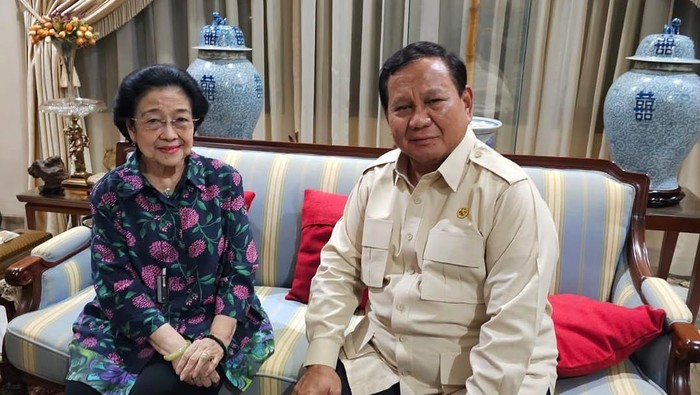
President Prabowo Subianto and Megawati Soekarnoputri, Indonesia’s fifth president and Chair of the Indonesian Democratic Party of Struggle (PDIP), held a closed-door meeting last Tuesday evening at Menteng, Central Jakarta (Apr. 7).
The two reportedly spoke in private without the involvement of any elite members from either PDIP or Gerindra Party, which Prabowo leads.
UGM political analyst Alfath Bagus Panuntun El Nur Indonesia remarked that meetings between a current and a former president are not uncommon, especially considering that the two once ran together in the 2009 presidential election and are central figures of two major nationalist parties.
Although the meeting itself is not unprecedented in Indonesian politics, its closed-door nature has drawn public attention, suggesting the discussion of strategic matters that were not disclosed.
“This meeting reflects how informal communication among political elites often occurs in spaces inaccessible to the public,” said the analyst on Thursday (Apr. 10).
Alfath Indonesia explained that it is difficult to determine whether the meeting between the two party elites was more about power politics or genuinely motivated by national interest.
Given their prominent positions, the meeting likely served as a forum for consolidation or post-election interest negotiations.
He added that gathering these two major figures can positively impact national political stability and may help ease the transition of power.
“Our hope is that this meeting facilitates a smoother transition of power and supports the realization of national cohesion,” he stated.
However, he also noted public concern that the meeting was held behind closed doors without involving other party elites.
Closed-door meetings among elites often prompt questions and speculation.
“This is understandable, as the public expects the current administration to be kept in check. Not everyone should join a grand coalition. This type of meeting invites speculation, especially since the 90-minute conversation included a one-on-one session between Prabowo and Megawati, which likely involved post-election negotiations,” he added.
He also emphasized that it is difficult to imagine political elites openly discussing substantive matters with the public in such informal settings.
Only fragments of the conversation are usually shared. He stressed the importance of public vigilance in monitoring the dynamics of power and not focusing solely on this one event.
Indonesia hoped elite meetings would prioritize the public’s welfare, especially given the current economic challenges.
“This should not only be seen as a moment of political reconciliation but also as a means to keep those in power in check,” he concluded.
Author: Kezia Dwina Nathania
Editor: Gusti Grehenson
Post-editor: Afifudin Baliya
Photograph: Sufmi Dasco Ahmad

